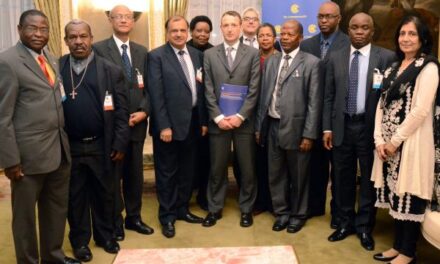2012 has seen Ministerial Task-Force proposals on ways for restructuring the Commonwealth Secretariat command the attention of stakeholders across all Commonwealth education organisations. At the heart of this are concerns that the role of education in Commonwealth activities could be marginalised, that the place for a dedicated education section within the Secretariat would be lost, and that the extensive contribution that educational initiatives have made over many productive decades would be forgotten or overlooked in ongoing decision making.
These issues were discussed thoroughly at the 18th Conference of Commonwealth Education Ministers held in Mauritius in August 2012, and they have since generated ongoing debate in related constituencies worldwide. At the 18th CCEM the resulting Mauritius Communique makes it very clear that Ministers of Education were adamant that they not only objected to any diminution of the place of education, and of an education section, within the Commonwealth Secretariat, but they also called for a strengthening of such activities in future years.
Ministers from the small states of the Commonwealth (nations that comprise over half of the Commonwealth’s national membership) were particularly engaged in these discussions in the light of the leading international role that the Commonwealth has played in supporting educational development in small states. Indeed, since the first pan-Commonwealth Meeting on Education in Small States was held in Mauritius in 1985, the Commonwealth has been widely regarded as the leading international agency for work on education in small states, and as an inspiration and catalyst for innovative activity and research by other bodies such as UNESCO, The World Bank and small state governments themselves. If this unique track record and comparative advantage is not acknowledged and recognised by those challenging the place and potential of the education section within the Secretariat, then this leading global position could be lost…. to the impoverishment of small states and of the Commonwealth itself.
Certainly, ways of strengthening activities in the arena of education could be very beneficial for the future, but comparative experience suggests that this requires more than the proposed contracting out of projects and enhanced networking and online solutions. The removal of core staffing could severely limit both the leadership potential of the Commonwealth and the quality, continuity and impact of ongoing work on education in general, and education in small states in particular.
This clearly deserves more careful discussion. In tune with long held Commonwealth principles, the decision making process must genuinely reflect the wishes of those most closely concerned, including Ministers of Education, education stakeholders at all levels, and the family of Commonwealth education organisations. What are their priorities and aspirations for the future of the Commonwealth’s role in education?




